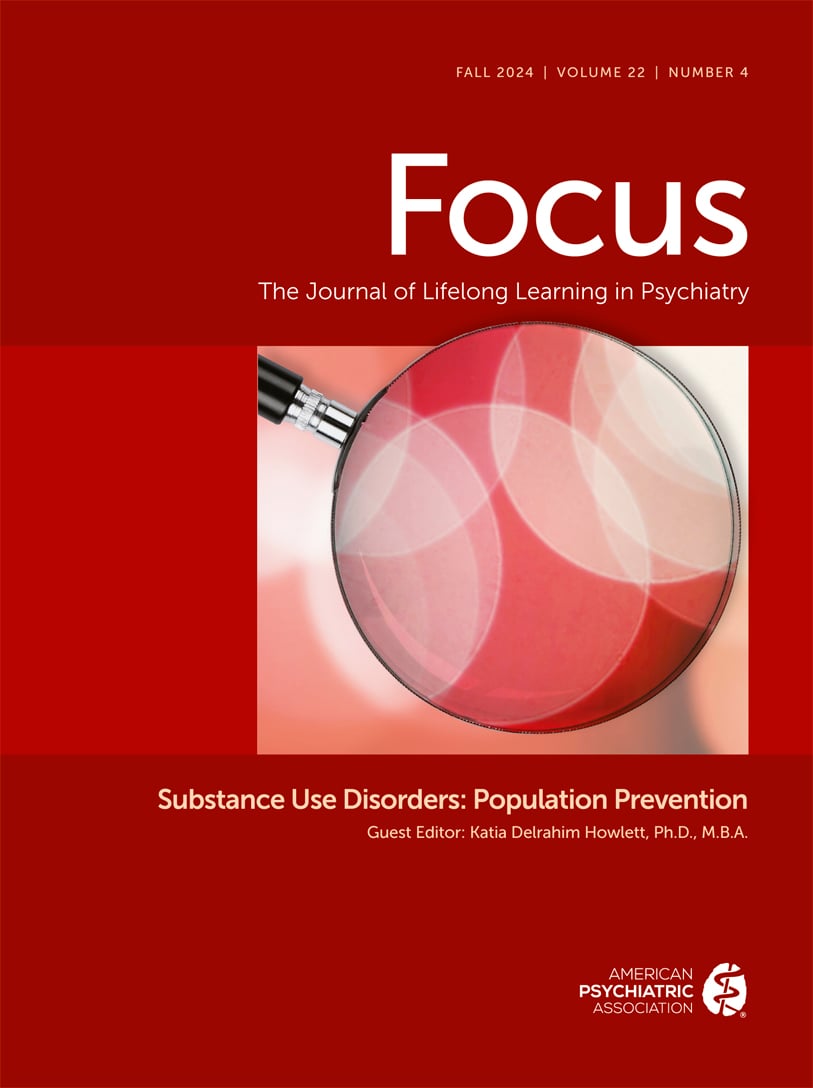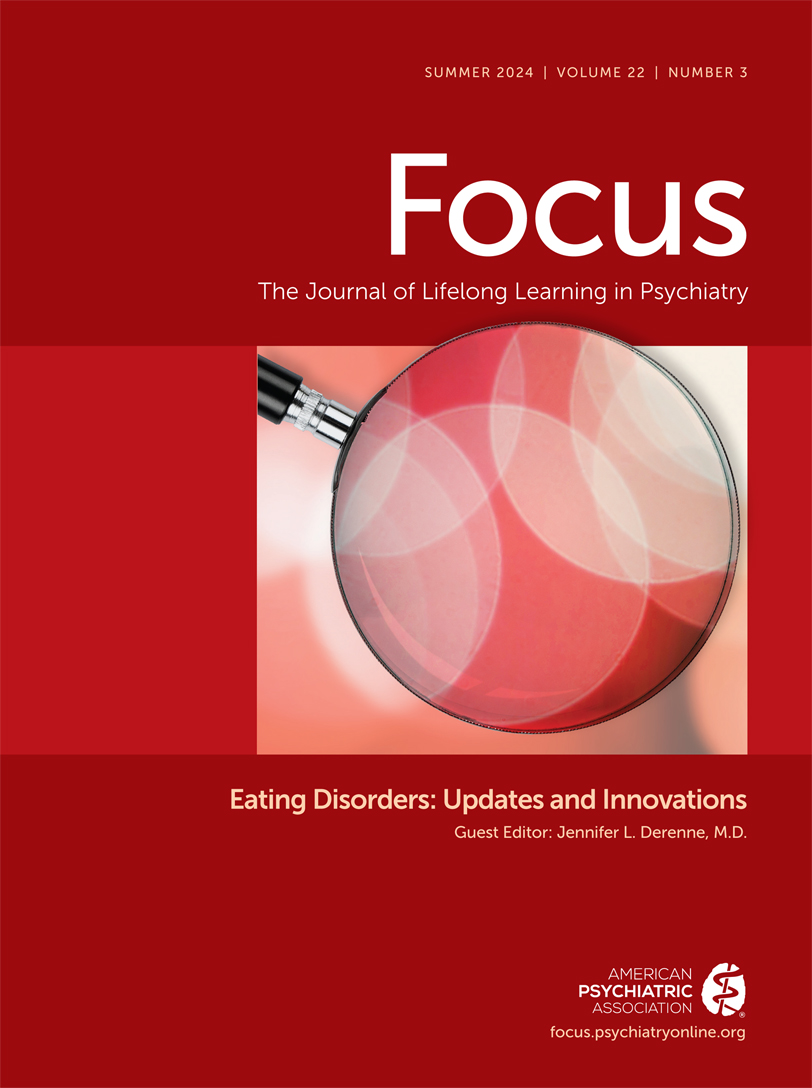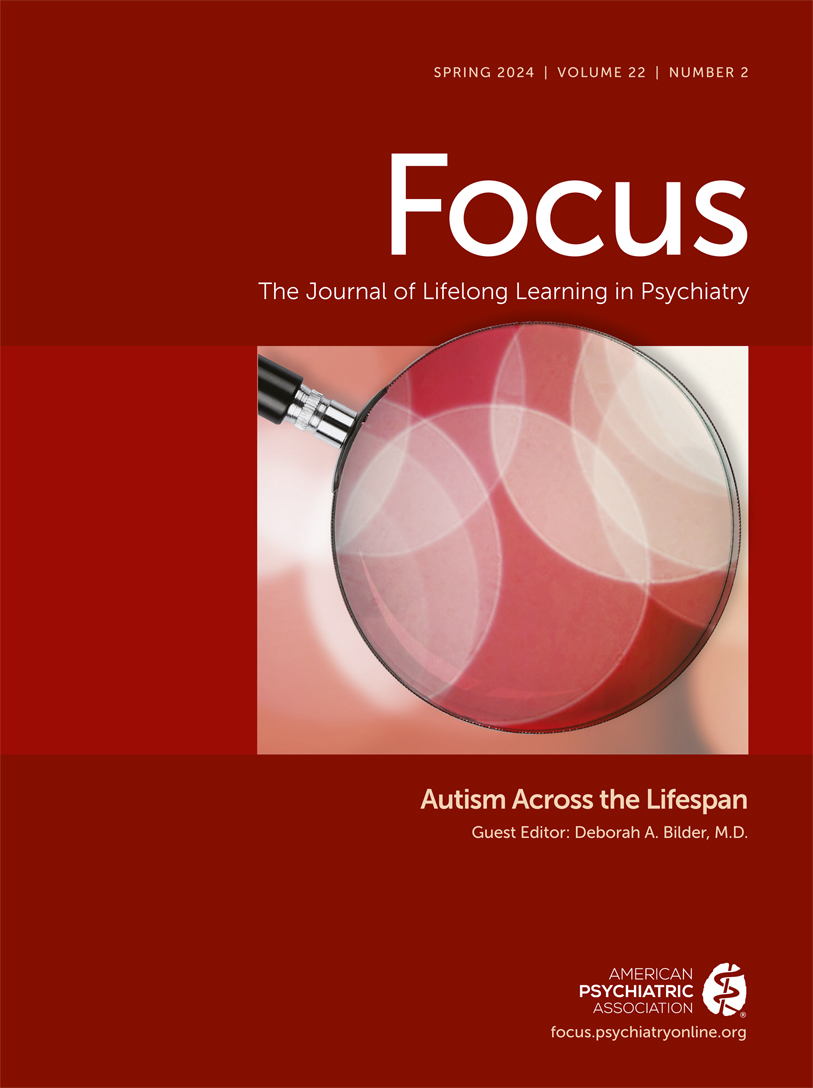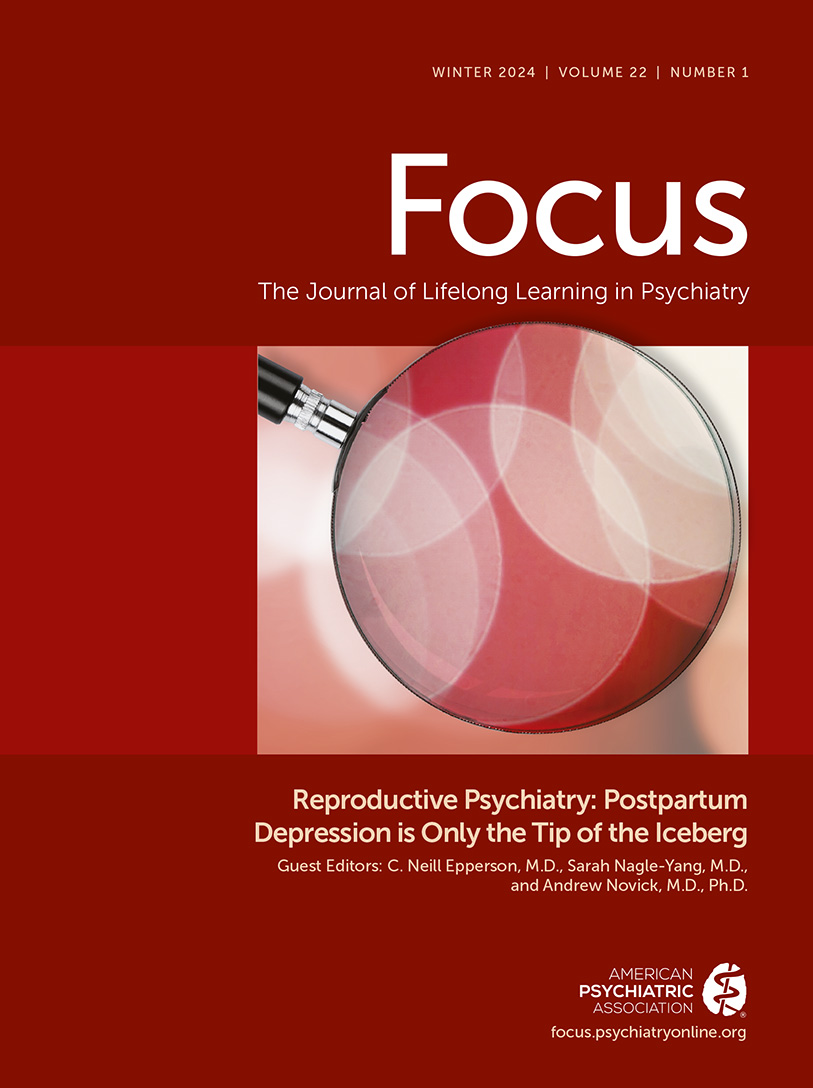Focus
- Volume 15
- Number 4
- October 2017
From the Guest Editor
Reviews
Publication date: 01 October 2017
Pages378–383Since September 11, 2001, more than two million U.S. service members have deployed to Iraq or Afghanistan, many returning home with posttraumatic stress disorder (PTSD) and additional psychological and general medical complaints. Nonetheless, many do not ...
https://doi.org/10.1176/appi.focus.20170022Publication date: 01 October 2017
Pages384–389Mild traumatic brain injuries (MTBIs) are common in sports, military service, and daily life. Limited data are available on the mental health needs of veterans with a history of MTBI who are seeking care in the community. The purpose of this article is to ...
https://doi.org/10.1176/appi.focus.20170028Publication date: 01 October 2017
Pages390–398Over the past decade, the use of integrative health modalities, such as mind-body interventions, art therapy, nutrition, and exercise, to treat stress-related mental health conditions, including posttraumatic stress disorder (PTSD), in military and ...
https://doi.org/10.1176/appi.focus.20170026Publication date: 01 October 2017
Pages399–405Moral injury refers to a set of reactions to acts of perpetration or commission that violate an individual’s deeply held beliefs and moral values. Although there is consensus that military service increases exposure to morally injurious events, there is ...
https://doi.org/10.1176/appi.focus.20170023Publication date: 01 October 2017
Pages406–410Posttraumatic stress disorder (PTSD) is a costly mental health issue in the United States and throughout the world. Effective treatments are available; however, most people with PTSD never access these treatments. Prolonged exposure (PE) therapy has ...
https://doi.org/10.1176/appi.focus.20170021Publication date: 01 October 2017
Pages411–419This article discusses the scope and impact of military sexual trauma (MST) in the U.S. Armed Forces. The authors explore aspects of the military setting that may make recovery from this form of sexual violence particularly difficult. Risk factors for MST ...
https://doi.org/10.1176/appi.focus.20170024Publication date: 01 October 2017
Pages420–428Since the September 11, 2001, terrorist attacks, military service in the United States has been linked to a range of behavioral health and physical injuries in a significant number of the almost three million service members who have returned from wartime ...
https://doi.org/10.1176/appi.focus.20170027Ask the Expert
Communication Commentary
Ethics Commentary
Safety Commentary
Applied Armamentarium
Publication date: 01 October 2017
Pages445–449The practice of psychopharmacology has become increasingly complex with the expansion of medication options across psychiatric conditions. The level of variability among psychiatrists in their application of medication treatments has received little ...
https://doi.org/10.1176/appi.focus.20170029Bibliography
Abstracts
Influential Publications
Publication date: 01 October 2017
Pages454–461Background and Objectives: Post-traumatic Stress Disorder (PTSD) and substance use disorders (SUD) frequently co-occur, and their combination can increase poor health outcomes as well as mortality. Methods: Using PUBMED and the list of references from key ...
https://doi.org/10.1176/appi.focus.150405Publication date: 01 October 2017
Pages462–468Background: Prolonged Exposure (PE) therapy is an efficacious treatment for PTSD; despite this, many clinicians do not utilize it due to concerns it could cause patient decompensation. Method: Data were pooled from four published well-controlled studies of ...
https://doi.org/10.1176/appi.focus.150404Departments
Reviewing the Clinical Landscapes
Past Issues
View Issues Archive
Vol. 22 | No. 4

Vol. 22 | No. 3

Vol. 22 | No. 2
